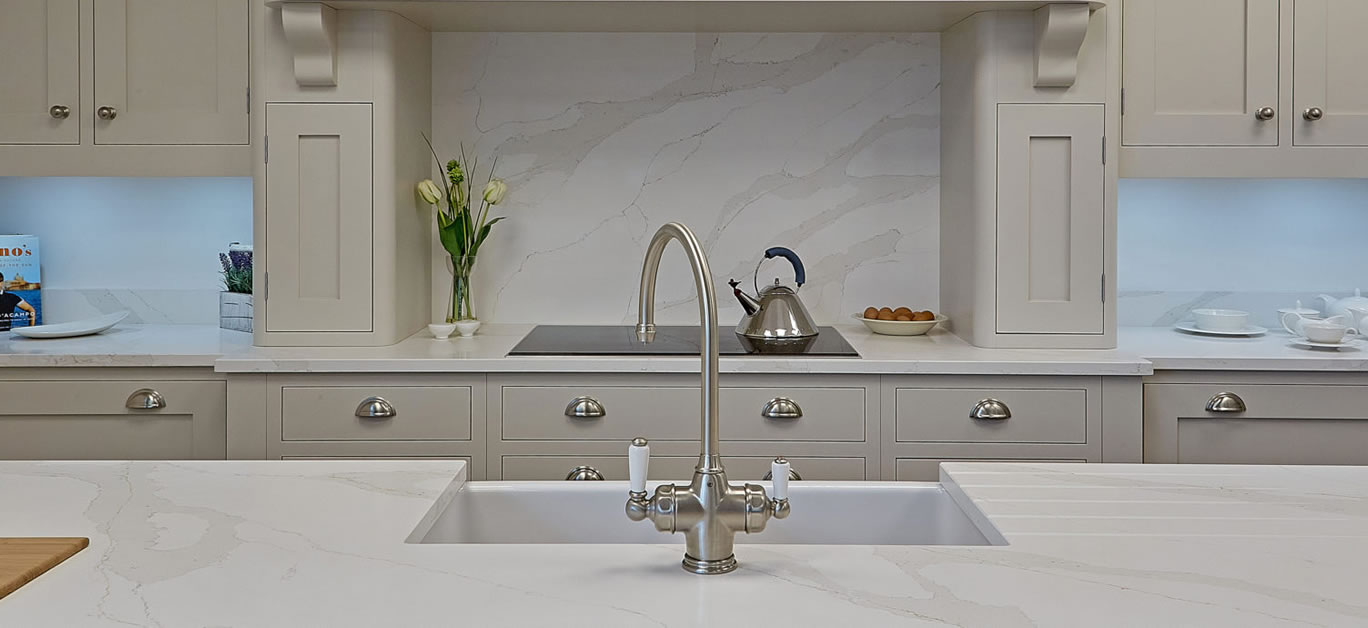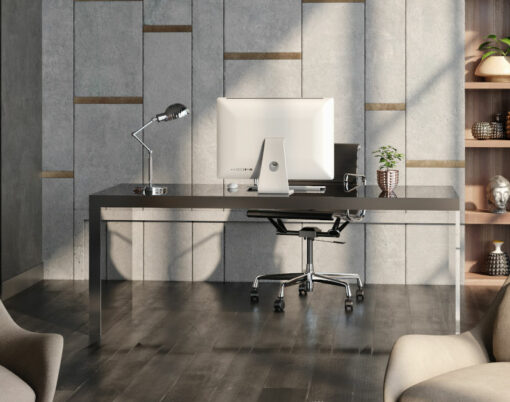When it comes to renovating your kitchen, you will be aware that it isn’t a project that will be undertaken all too often, and therefore the need to ensure all elements are nothing short of perfect is all too important.
From the floors to the worktops and appliances to the finishing touches, such as the door handles and window coverings, there are plenty of parts that make up a stylish, yet functional room that you will relish spending time in. What makes the process of choosing the perfect kitchen a little bit tricky are the seemingly endless options for each and every element, along with the general questions and issues that pop up during the process of the actual renovation.
One of the main components of the kitchen is the worktop, and it is one that will see the most use, so you need to make sure that it is durable, easy to clean and takes minimal effort to maintain not just now, but in the future, too. From solid wood to quartz, laminate to composite stone and stainless steel too, there are many types of material to choose from, all of which come with their own advantages and disadvantages.
Here, at LLM, we aren’t strangers to quartz worktops and their endless qualities, and so below we are going to take a look at the many benefits of this hardy material and also highlight some key maintenance tips to ensure your brand-new worktop stays in top-notch condition for years.
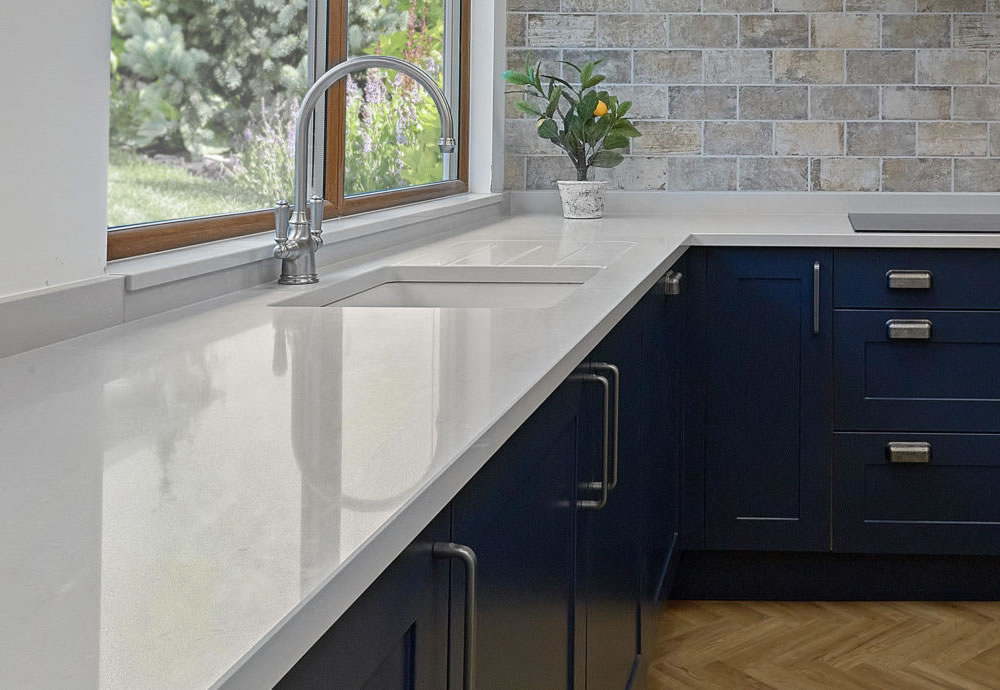
What is quartz?
First of all, it’s important to understand what exactly quartz is before we can recognise what makes it a great material for a worktop.
Quartz is a naturally occurring mineral and one of nature’s hardest materials found in metamorphic, sedimentary and igneous rocks. During the process of creating a worktop, the raw material is bonded with resin, polymers and pigments (7% to a ratio of 93% quartz) to create a perfect piece of material that doesn’t absorb water upon installation or provide too brittle a surface. The mixture is poured into a mould, compacted into slabs with a pressure of 100 tonnes, cured in a kiln and then polished to create a sleek, beautiful looking worktop.
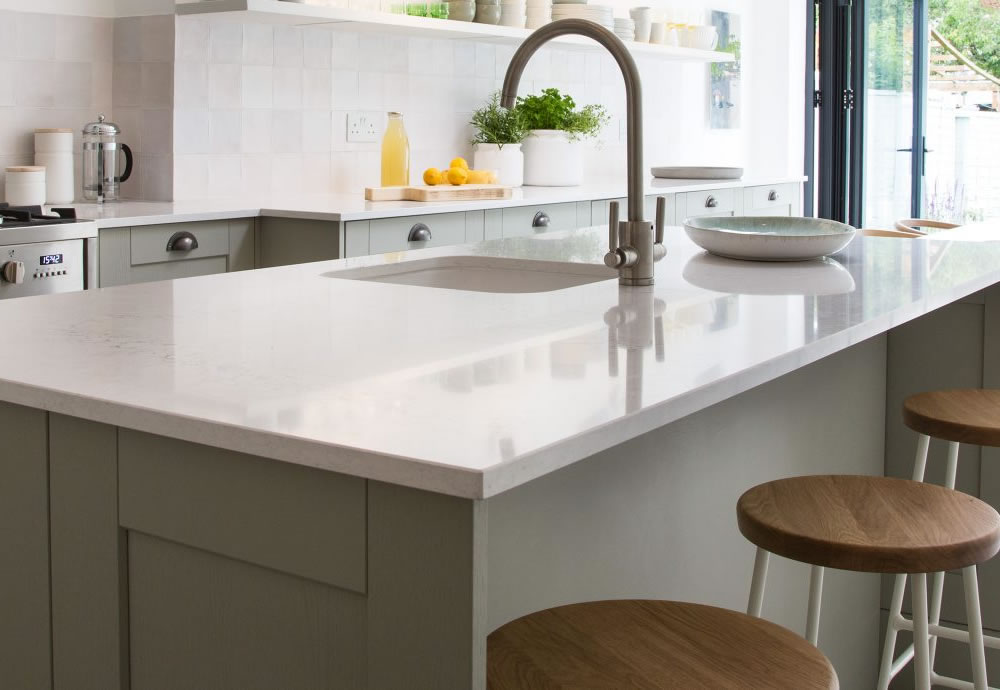
What are the advantages of quartz worktops?
Due to the specific ratio and processes involved in crafting this engineered stone, it results in a rather perfect piece of material to use for a worktop around the home, meaning the advantages of quartz worktops are plentiful. The manufacturing process ensures that the end result is a durable artificial stone without cracks or pores and one that requires low maintenance too, perfect for any homeowner who doesn’t have the time or inclination to spend hours on cleaning, polishing and caring for their purchase.
It may surprise you to learn that quartz worktops are actually harder than granite and marble, making for a more long-lasting and sturdy material (while still looking just as good) – perfect for an area which is prone to much use. A huge advantage of quartz is that it is non-porous and therefore doesn’t absorb liquids such as water, oils, wine, juice and soap, making this a much more hygienic option when compared to other popular materials.
In addition to this, quartz does not require sealing, it is resistant to heat, impact, scratch and stains, it is easy to maintain and, aside from the practical aspects, it looks fantastic too, suiting many types of kitchen styles.
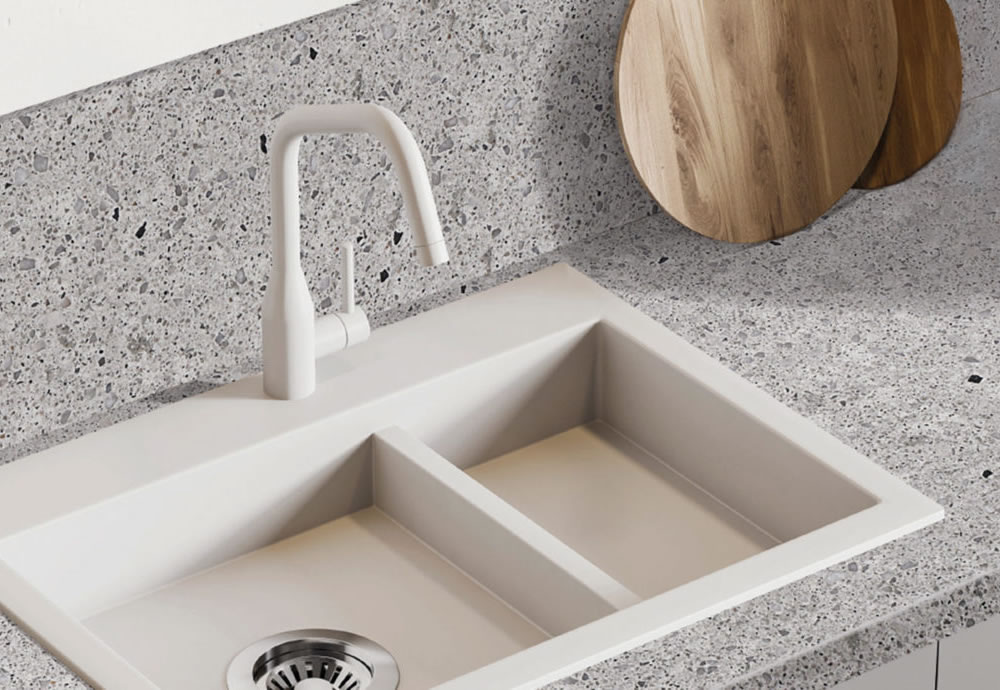
How to look after your quartz worktops?
Some questions you may ask yourself when considering this material for your home are; do quartz worktops scratch and do they stain? As mentioned in the many advantages above, they do not, however, this doesn’t mean that they should be treated as completely indestructible or not looked after at all. Everything requires a little care and maintenance to keep it looking new.
Simply clean with a damp cloth or paper towel (never an abrasive pad) and mild detergent, rinse and dry the surface to ensure there are no streaks left. As with any worktop, avoid using knives directly on the surface and opt for a chopping board instead, and place hot pots and pans onto a trivet when serving food. Don’t leave stains to sit on the surface, rather wipe them away quickly before allowing to settle. However, if you do come across a stubborn stain that you can’t remove with mild soap, try a specialised stone cleaner.
All imagery used in this article credit: CRL Quartz












